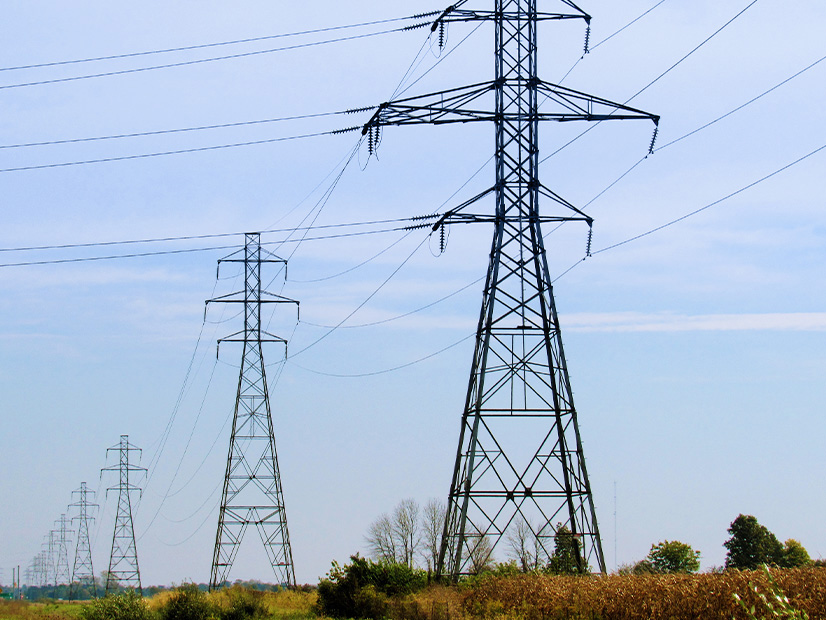
New England transmission owners have asked FERC to dismiss a RENEW Northeast complaint that seeks to shift the burden of network upgrade operations and maintenance costs off interconnection customers.
In the complaint, the renewables group argued that ISO-NE
is the only U.S. region in which interconnection customers are directly assigned costs for the capital and O&M needed for network upgrades, an “exemption” from FERC policy that RENEW said is unjust and unreasonable. (See Renewable Group Asks FERC for Interconnection Cost Changes in NE.)
In its response, ISO-NE asked to be dismissed from the complaint because the provisions under discussion are transmission rate terms under control of the transmission owners and in which the grid operator doesn’t hold any financial interest.
The transmission owners offered a more substantive answer, arguing that the complaint “fails to meet RENEW’s [Federal Power Act] Section 206 burden of proving that the tariff rate on file is unjust and unreasonable.”
The TO’s argue that generators paying for network upgrades is part of a “grand bargain” that also includes “free and unlimited open access to regional network transmission service on the ISO-NE system.”
It’s a deal that has been subject to FERC review several times and been repeatedly accepted by the commission, the TOs wrote.
They also argue that altering a single aspect of cost allocation for the region’s system could place the entire structure in “jeopardy,” which is why FERC has a “stated policy against unilateral changes to a single aspect of a comprehensive negotiated rate structure.”
Other Corners Respond
New England’s generators, unsurprisingly, backed the RENEW complaint.
The New England Power Generators Association (NEPGA) described in its comments the “negative impact this unlawful assignment of O&M costs has on competitive market outcomes.” NEPGA noted that market participants can’t recover the O&M costs in the capacity or energy markets.
“The shifting of costs RENEW highlights creates broad negative economic consequences both for resources that rely on markets to produce economic outcomes and those that pay for their services,” the association wrote.
Likewise, in a joint comment, the renewable and clean energy groups Advanced Energy United and the Northeast Clean Energy Council supported RENEW’s complaint, saying the direct assignment charges at issue “unduly burden interconnection customers” that are currently most heavily represented by renewable and storage developers.
“Directly assigning O&M network upgrade costs to interconnection customers clearly violates FERC’s O&M cost policy and the ‘beneficiary pays’ rule of cost allocation and should not be sustained,” the groups wrote.
Among those weighing in against the RENEW complaint were the New England states (as represented by New England States Committee on Electricity) and newly appointed Massachusetts Attorney General Andrea Campbell. Both argued that the complaint would shift costs unfairly onto ratepayers.
“RENEW seeks to replace long-settled rules that put development risks and costs on interconnection customers with a one-sided bargain that shifts 100% of those costs to consumers,” NESCOE wrote in its comment. “The commission should reject that myopic approach, as both bad policy and a matter of law.”
Campbell’s comment pointed to precedent, including past commission rulings and failure of a similar proposal in the NEPOOL process, to argue against the complaint in addition to expressing worries about the costs for consumers.
“New England ratepayers … already pay higher transmission costs than customers in any region in the United States,” the AG wrote. “To grant RENEW’s cost shifting remedy would only exacerbate New England ratepayers’ already high transmission rates.”
